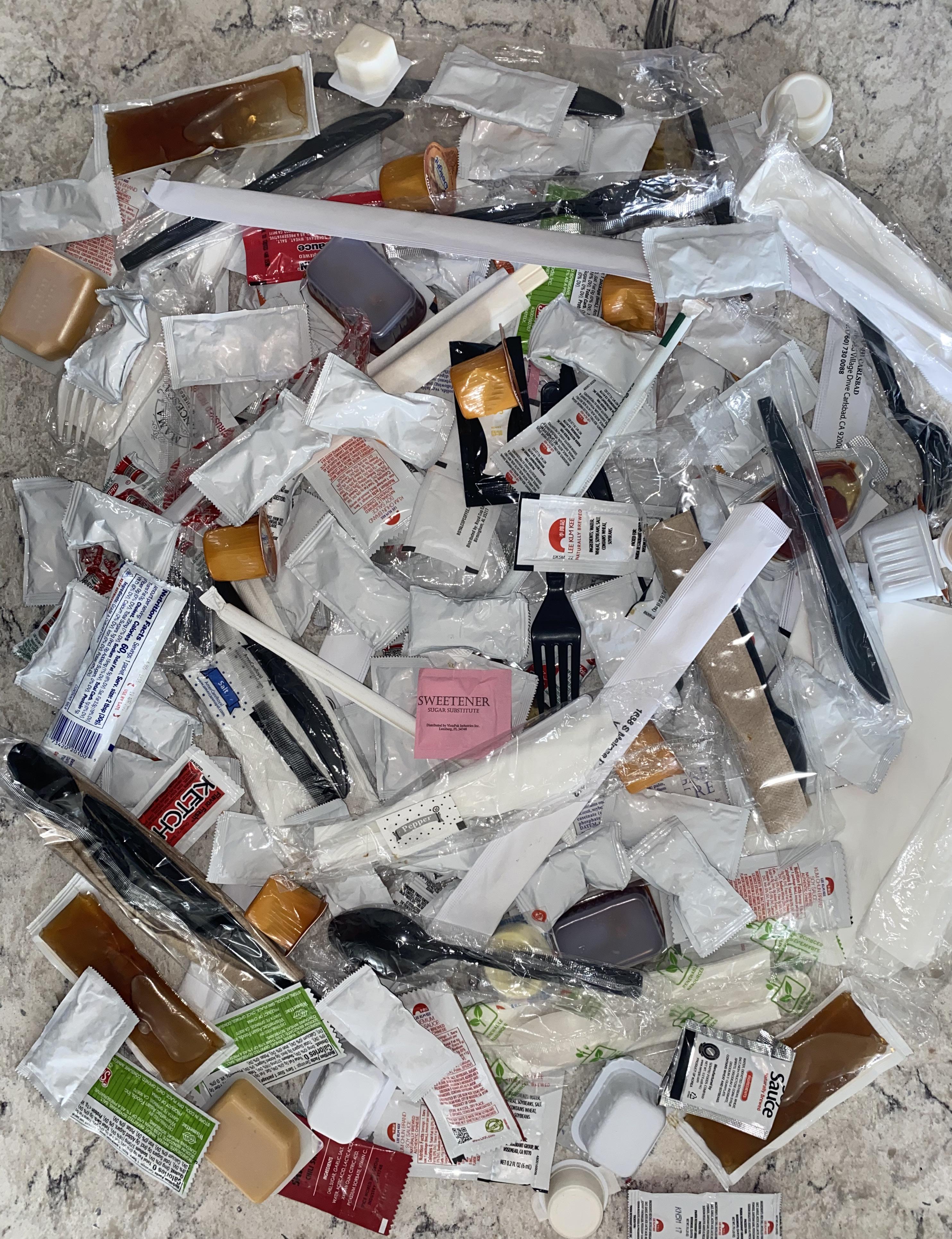
2 minute read
Why Should You #SkiptheStuff?
Let’s face it, you may have found yourself ordering takeout during the pandemic, and even swinging by your favorite restaurants, coffee shops, and food trucks when things opened back up. You may have also accumulated a drawer full of plastic utensils, condiment packets, a pile of napkins, and who knows what else, and regardless of your intent to put them to good use, the drawer remains full. But guess what? You’re not the only one.
THE PROBLEM
In the U.S., 561 billion unused straws, utensils, napkins, condiment packets, and other single-use accessory food ware are distributed every year, resulting in 4.9 million tons of waste. Many of these products are often difficult to recycle and are not accepted in most City recyclable materials collection programs, and they often end up as trash in landfills or as litter in waterways and streets.
THE SOLUTION
A simple solution to this growing problem is to just #SkipTheStuff! Let your favorite restaurant know when you do not need these disposables. Why? For the planet, for businesses and for you! Single-use plastics add to the pollution crisis that many of us have seen in our local neighborhoods, creeks, and ocean. Fossil fuels and other natural resources are required to produce these single-use plastic items that are either never used, or are only used one time, and then thrown away. And for businesses? California restaurants who have switched to an “Upon Request” policy for single-use accessory ware have already seen cost savings between $3,000 and $21,000 each year. A #SkipTheStuff mindset can provide much needed economic relief for the Oceanside business community and limit the amount of single-use accessory food ware piling up at home. The City’s Green Oceanside team is committed to protecting our environment, preserving natural resources, and improving the quality of life for residents, businesses, and visitors through programs dedicated to watershed protection, energy and climate action, zero waste, and water conservation. To learn more about Green Oceanside and to stay updated on upcoming events, virtual programming, and the latest information, visit www.GreenOceanside.org.
The City of Oceanside is dedicated to reducing greenhouse gas emissions, and has a target of reaching a 25% reduction by 2030 through its Oceanside Climate Action Plan and strategies outlined in its 2020 Zero Waste Plan. To learn more about these initiatives, visit www.ci.oceanside.ca.us and www.greenoceanside.org.











